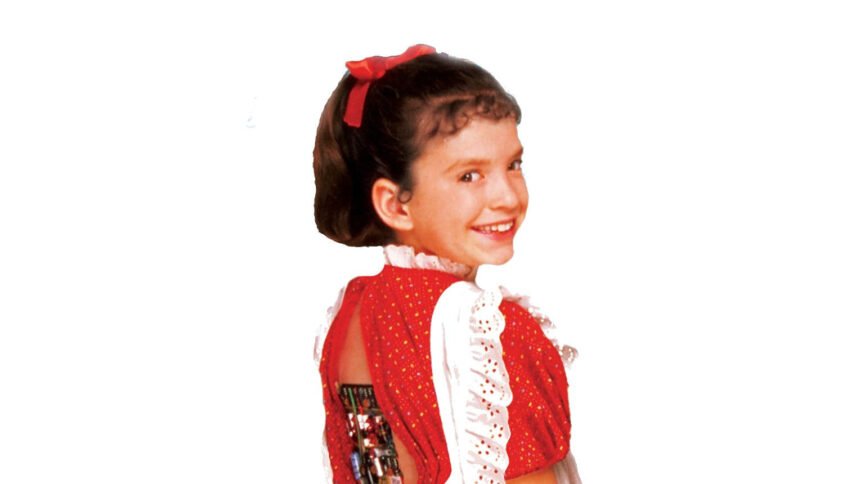The 1980s were a golden age of television a time when imagination met family-friendly storytelling. Among the decades most memorable and eccentric sitcoms, few stand out quite like Small Wonder, the quirky, low-budget sci-fi comedy centered on a child android named Vicki. Even today, the phrase small wonder Vicki sparks instant nostalgia among classic TV fans and pop culture enthusiasts.
But how did Small Wonder and its mechanical star achieve such a lasting place in television history? Lets explore the origins, casting, and cultural legacy of one of TVs most unusual yet beloved creations.
The Premise: When Science Fiction Met the Suburbs
Small Wonder premiered on September 7, 1985, and ran for 96 episodes across four seasons. The story followed Ted Lawson, a robotics engineer at United Robotronics, who created a revolutionary invention the Voice Input Child Identicant, or V.I.C.I. for short. Designed to resemble a 10-year-old girl, Vicki the robot was built to assist disabled children.
To test her functionality, Ted brought Vicki home, passing her off as his familys adopted daughter. From there, chaos and comedy ensued as the Lawsons tried to keep Vickis robotic identity secret from their nosy neighbors, the Brindles.
The shows humor revolved around Vickis robotic misunderstandings of human behavior, her monotone voice, and the familys constant struggle to hide her superhuman abilities like immense strength, lightning-fast logic, and even a control panel hidden in her back. This perfect mix of suburban sitcom and futuristic fantasy made Small Wonder a standout hit of its era.
Casting the Iconic Vicki: Tiffany Brissettes Breakthrough Role
Casting small wonder Vicki was a unique challenge. Producers needed a child who could act both mechanical and endearing robotic yet relatable. Tiffany Brissette won the role after standing out from hundreds of young hopefuls. Her ability to speak in a precise monotone, maintain robotic stillness, and still convey innocence made her performance unforgettable.
Brissettes portrayal turned Vicki into more than just a robot she was a believable machine with a heart. The role demanded physical control, perfect timing, and even stunt-like precision for slapstick scenes and malfunction gags.
Her dedication paid off. Tiffany Brissette became a television sensation, representing Small Wonder at media events around the world. Her performance remains a benchmark for robotic characters in entertainment paving the way for future portrayals of lifelike AI on screen.
The Supporting Cast: Family and Suburban Chaos
The heart of Small Wonder extended beyond Vicki herself. The shows supporting cast brought warmth and humor to the Lawson familys secret.
-
Dick Christie starred as Ted Lawson, the kind-hearted inventor.
-
Marla Pennington played Joan, his patient wife, who grew to love Vicki as her daughter.
-
Jerry Supiran portrayed Jamie Lawson, the mischievous brother often caught up in Vickis adventures.
-
Emily Schulman completed the ensemble as Harriet Brindle, the endlessly curious neighbor who often came too close to uncovering the truth.
Their chemistry gave the series its emotional core. Many episodes revolved around Ted and Joans increasingly wild schemes to protect Vickis identity from Harriet and her family. The result was a mix of situational comedy, family values, and gentle satire of suburban life.
Evolving Vicki: The Challenge of a Forever 10-Year-Old Robot
One creative challenge the producers faced was how to address Tiffany Brissettes natural aging. Since Vicki was supposed to stay a 10-year-old robot, the writers introduced an in-universe system upgrade in Season 3. This allowed her to mature slightly she gained new capabilities like eating and drinking, and adopted a more modern wardrobe while maintaining the shows continuity.
This clever narrative tweak kept the series believable (by 1980s sitcom standards) and allowed Brissette to continue growing into the role naturally.
A Global Phenomenon: Small Wonders Worldwide Reach
Though Small Wonder was first syndicated in the United States, it became a massive international hit. The show was dubbed into over 50 languages and broadcast across Europe, Asia, and Latin America, where it was often renamed Super Vicki.
This global success made Vicki one of the first TV robots to gain truly international recognition. Her blend of innocence, humor, and sci-fi charm resonated far beyond American audiences, turning her into a pop culture ambassador for an entire generation.
Critics and Cult Status: From So-Bad-Its-Good to Retro Classic
Upon release, Small Wonder was frequently mocked by critics for its low production budget, clunky effects, and formulaic writing. Yet despite or perhaps because of these flaws, the series became a cult favorite.
Today, fans and scholars alike revisit Small Wonder Vicki as both a nostalgic artifact and a pioneering blend of family comedy and speculative fiction. What once seemed like camp now feels like an early exploration of humanitys relationship with artificial intelligence decades before smart devices became a reality.
Fan Legacy and Continued Love
Long after its final episode aired, Small Wonder continues to inspire fan communities online. Viewers trade memories, share clips, and collect memorabilia, keeping Vickis memory alive. Rumors of potential reboots or revivals still circulate occasionally proof of how deeply this odd little sitcom remains embedded in pop culture.
Where Are They Now?
After the show ended, Tiffany Brissette gradually stepped away from acting. Following a few guest roles in the 1990s, she transitioned to a new chapter in life working as a registered nurse in Boulder, Colorado.
Meanwhile, Dick Christie continued acting, including a long-running role on The Bold and the Beautiful, while other cast members like Jerry Supiran and Emily Schulman have reflected candidly on their Small Wonder experiences.
Vickis Influence on Pop Culture and Robotics in Media
The impact of Small Wonder goes far beyond nostalgia. Vicki the robot influenced how robots and AI characters would be written and portrayed for decades. Her mix of mechanical precision and emotional curiosity foreshadowed later TV and film robots from Star Trek: The Next Generations Data to the child androids seen in modern science fiction.
In many ways, Small Wonder bridged the gap between the analog age of television and the digital, AI-driven world of today.
Final Thoughts
More than just a relic of 1980s television, Small Wonder stands as a charming example of how creativity, heart, and imagination can turn even a modestly made sitcom into a cultural landmark.
Small Wonder Vicki endures not just as a character but as a symbol of televisions ability to mix humor, innocence, and futuristic curiosity. Its a small wonder indeed that this robot girl continues to capture hearts decades after her debut.









